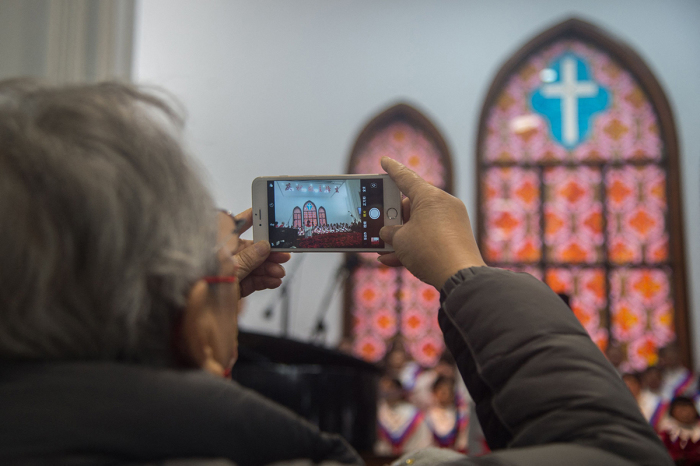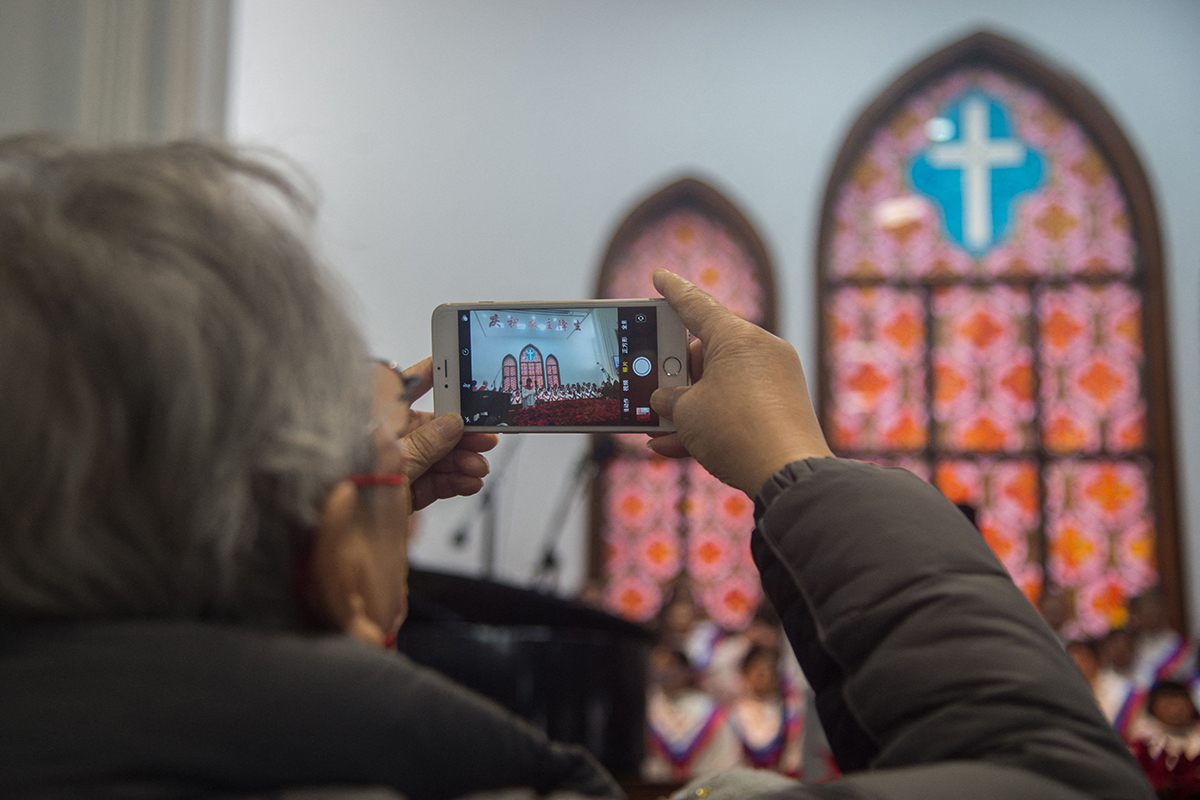
Oppressive regimes like China and Iran are using artificial intelligence tools like facial recognition technology to “track” and “repress” Christians at a “level that wasn’t available to them before,” the chair of the U.S. Commission on International Religious Freedom has warned.
“Some of these new technologies used by countries like Iran and China, create brand new ways for the repression of religion or the control of religion around the world. So it’s a very concerning development, and something that we want to keep an eye on,” Stephen Schneck, former dean and professor at The Catholic University of America, told Premier News.
“In China, facial recognition techniques allow the Chinese Communist Party to monitor those who attend religious ceremonies, and so it enables them to track them and to repress them at a level that wasn’t available to them before. And similar technologies are available around the world.
“It’s truly Orwellian, and it is, I fear, the shape of the world to come. So now is the time for us to begin developing mechanisms to respond to it within the faith communities around the world.”
Schneck made his comments this week ahead of the International Ministerial Conference on Freedom of Religion or Belief in Berlin. The annual conference, held in a different global city each year, is this year focusing on how authoritarian regimes are leveraging AI to monitor and repress religious groups, particularly Christians.
“It’s a tremendous concern, and something the commission follows closely. Around the world, persecution of religion is spiking for a variety of reasons, for the most part, because of rising authoritarianism and maybe a bit of erosion in democracy,” he said.
“The truth is that authoritarian governments don’t want their citizens to […] appeal to any source of right or truth or authority outside the state or outside the party. And so religion, fundamentally, is an inherent challenge to authoritarian regimes.”
The conference comes as global religious persecution continues to rise. According to the persecution watchdog Open Doors, more than 365 million people worldwide, or one in seven Christians, faced persecution for their faith in 2023.
Arthur Herman, a senior fellow and director of the Quantum Alliance Initiative at the Hudson Institute, recently warned that China’s centralized and aggressive AI development strategy aims to replace Western values with a totalitarian model enforced by the Chinese Communist Party.
In an article, he explained that China has integrated AI into its military and social control systems, particularly through surveillance technologies used to monitor and oppress groups like the Uyghurs, who have been subjected to concentration camps, forced labor and torture unless they pledged their loyalty to the CCP.
China’s investments in AI, projected to reach a third of global AI spending by 2027, are part of a larger plan to establish itself as the world’s AI superpower by 2030.
Herman warned that China’s goal is to use AI to dominate on a global scale, posing a serious challenge to the U.S. and other democracies. He noted that Beijing’s use of AI in human rights abuses, particularly against religious minorities, serves as a testing ground for AI-enhanced social control, which it could export to other authoritarian regimes.
“[The] United States needs to develop an overall AI strategy that aims not just at countering China’s moves in AI but advancing American AI supremacy,” he wrote.
“Which nation wins this struggle will ultimately depend on which one has the clearest idea of what it’s doing, and where it’s going. The Chinese clearly do, and theirs is a vision that is more frightening, and potentially more catastrophic for human freedom, than anything dreamed up by science fiction.”
The ethical and moral implications of AI technology have also prompted religious leaders to grapple with the potential risks and responsibilities it poses.
George Barna, a leading expert in church and worldview trends, told The Christian Post earlier this year he’s concerned about the potential negative impact AI will have on the Church.
“As the Body of Christ, we’ve got to be very suspicious of and careful about anything that even labels itself ‘artificial.’ It’s probably not good for our mental health, our physical health or our spiritual health. I just encourage genuine leaders to be very cautious about inviting any of that into our lives, and particularly into how we’re going to take that and then influence other people’s lives.”
Similarly, the Southern Baptist Convention and the World Evangelical Alliance recently expressed concerns about the implications of AI on human identity and free will.
Last year, the Resolutions Committee of the SBC produced a resolution titled, “On Artificial Intelligence and Emerging Technologies,” which was approved overwhelmingly by the voting messengers in attendance.
The resolution emphasized that Christians “must proactively engage and shape these emerging technologies rather than simply respond to the challenges of AI.”
“The Fall has adversely affected every aspect of creation, including the development and use of these powerful innovations” and may produce “dangerous and dehumanizing outcomes if not utilized with godly wisdom and discernment.”
The AI Resolution called “upon civic, industry, and government leaders to develop, maintain, regulate, and use these technologies with the utmost care and discernment, upholding the unique nature of humanity, as the crowning achievement of God’s creation.”
Leah M. Klett is a reporter for The Christian Post. She can be reached at: leah.klett@christianpost.com








